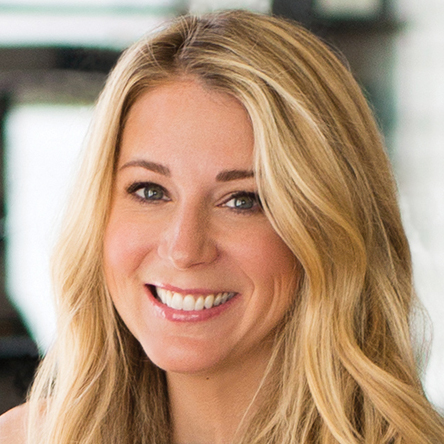Dr. Logan Levkoff
photo by Claudine Williams
by Sue Tomchin
“When I was in 10th grade one day after school I came home to find condoms and bananas on our dinner table,” says Logan Levkoff. Her parents had become involved with HIV/AIDS fundraising and education. They told her how to use a condom and informed her, “Next week you start training to become a peer educator.’ That was my foray into the sexuality space,” she recalls.
Today Levkoff, 42, is a respected educator dedicated to perpetuating healthy and positive messages about sexuality and relationships. She teaches widely, has written multiple books about both teen and adult sexuality and is an oft-consulted expert appearing on such TV shows as Nightline, Good Morning America, and The Today Show.
Though now living in Manhattan, Levkoff grew up on the North Shore of Long Island with her parents and younger sister. In school, she excelled at tennis, theater and debate. Her family—her parents as well as her beloved grandparents, Bea and Milton Shapiro—was deeply committed to the Jewish values of education, social justice and using your voice to make a difference.
“I can’t remember a time when that wasn’t part of who we were and what we were taught,” she says. “They are certainly the values that I teach my son and daughter today.”
These values inspired her mom to serve as JCC president but also to help start the first HIV and AIDS awareness program in the area. Looking back, Levkoff is grateful that her parents were forthright about sexuality. Her dad talked to her and her sister “about the importance of sexuality and how he was going to be comfortable with whatever decision we made as long as it was our own decision, not at the behest of someone else, and that we were protected emotionally and physically.”
Her experiences as an undergrad at University of Pennsylvania contributed to her decision to make human sexuality her professional direction. “I watched my friends—smart, savvy young women—make really bad decisions when it came to their sexual and emotional lives. And it wasn’t about using condoms and practicing safer sex. It was that there wasn’t reciprocation in relationships. Women felt uncomfortable having a voice and speaking up for what they wanted, and their needs.”
“When we are told as women that we’re not entitled [to express our
sexuality]... it becomes really hard to consent, because we are rarely told to even think about what we want, let alone voice it.”
Realizing she had “a talent for talking about sex” she began writing a sex advice column on campus, before this practice became commonplace in the blogosphere. Though she initially considered becoming a therapist, a course with sexuality educator—and future mentor—Dr. Konnie McCaffree inspired her to shift her focus to becoming an educator. She received a Ph.D. in Human Sexuality, Marriage, and Family Life Education from NYU.
One of the best parts of her work, Levkoff says, is the relief she sees on the faces of young people when she tells them that “their bodies work the way they are supposed to work; that their feelings and desires and identities are justified and valued.”
She is intensely aware that girls face societal barriers making it hard for them to acknowledge that they have a right to express their needs and desires, without fear of condemnation. “Every day I work to deconstruct the traditional double standard,” Levkoff declares, “the idea that when it comes to sexuality, bodies and relationships, two people of two different sexes or genders can do the exactly same thing and one’s social stature will be elevated and the other will get a hideous name attached to her.”
“When we are told as women that we’re not entitled [to express our sexuality] it shuts down our voice, and it becomes really hard to consent, because we are rarely told to even think about what we want, let alone voice it.”
In any given week, Levkoff may teach young people from age 7-18 in three to five different schools. Many of them, she finds, still receive unhealthy messages about their sexuality or are not told essential information. She has even seen “girls whose bodies are developed who have never been told about menstruation.”
Between her teaching, speaking engagements and media interviews, Levkoff makes sure that she takes her daughter to and from school at least four days a week and attends her son’s ice hockey games.
Her son celebrated his bar mitzvah this past spring at the same synagogue her late grandparents attended and where her own family, her parents, and her sister still belong.
“For my husband Louis and I there was nothing better than hearing our child read from the Torah and speak so beautifully and passionately about meaningful issues,” she says.
Her grandfather, a Past President of Jewish National Fund (JNF) and ZOA, was one of her role models. In his and her grandmother’s memory, she and her family help fund Caravan for Democracy, a JNF program that takes 80 non-Jewish student leaders on an annual mission to Israel.
Levkoff continues to live by the values that her grandparents and parents taught her as a child.
“So much of what I have chosen to do with my life is about having a voice and trying to make the world better,” Levkoff says. “It may not have been the typical path, but it came about because there was this need for better education and equity so people could lead their best, healthiest lives. I have tried to fill that void.”















